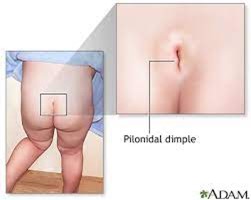A nurse is preparing to administer aspirin 650 mg PO every 12 hr. The amount available is aspirin 325 mg tablets. How many tablets should the nurse administer?
(Round the answer to the nearest whole number. Use a leading zero if it applies. Do not use a trailing zero.)
The Correct Answer is ["2"]
The nurse should administer 2 tablets.
Here's the calculation:
650 mg / 325 mg per tablet = 2 tablets
Since the nurse should administer a whole number of tablets, the answer is 2 tablets.
Nursing Test Bank
Naxlex Comprehensive Predictor Exams
Related Questions
Correct Answer is {"dropdown-group-1":"D"}
Explanation
Pilonidal dimpling with the presence of an abnormal tuft of hair in or near the dimple
Explanation:
Spina bifida is a congenital condition where there is incomplete closing of the backbone and membranes around the spinal cord during early development in the womb. Pilonidal dimpling with the presence of an abnormal tuft of hair in or near the dimple is a specific sign of spina bifida. This condition is called "sacral dimple," and it can indicate an underlying issue with the spinal cord and nerves. An abnormal tuft of hair in or near the dimple suggests a neural tube defect, which is characteristic of spina bifida.
Why the other choices are incorrect:
A. complete paralysis:
Complete paralysis is a severe neurological symptom but it is not specific to spina bifida. It can occur due to various other conditions as well, such as spinal cord injuries, infections, and neurological disorders. It's not a characteristic sign of spina bifida.
B. Petechiae:
Petechiae are small, red or purple spots on the skin that are caused by bleeding under the skin. They are usually associated with bleeding disorders, infections, or other medical conditions. Petechiae are not a characteristic sign of spina bifida.
C. Abnormal Vital Signs:
While spina bifida can potentially lead to neurological complications that might influence vital signs, the presence of abnormal vital signs is a non-specific symptom. Abnormal vital signs could be caused by a wide range of medical conditions, and they are not directly indicative of spina bifida.

Correct Answer is C
Explanation
A) A story book about a child who has diabetes:
While a story book about a child with diabetes can be informative and reassuring, it might not directly address the child's distress after an insulin injection. The child needs an interactive play activity that mimics the experience to help them cope with the distress.
B) A period of play in the playroom:
Playing in a general playroom might be enjoyable, but it may not directly address the child's specific distress related to the insulin injection. To address the distress, a play activity directly related to the injection experience is more appropriate.
C) A needleless syringe and a doll.
Explanation:
Using a needleless syringe and a doll allows the child to engage in therapeutic play that simulates the experience of receiving an insulin injection. This type of play, known as medical play or therapeutic medical play, allows children to gain a sense of control and understanding over medical procedures in a non-threatening and imaginative way. By allowing the child to "give" the doll an injection using the needleless syringe, the child can process their feelings and fears related to their own injections, helping to reduce anxiety and distress.
D) A video game:
Playing a video game can be engaging and distracting, but it doesn't directly help the child process their feelings or fears about the insulin injection. Therapeutic play involving a needleless syringe and a doll provides a more hands-on and interactive way for the child to work through their emotions.
Whether you are a student looking to ace your exams or a practicing nurse seeking to enhance your expertise , our nursing education contents will empower you with the confidence and competence to make a difference in the lives of patients and become a respected leader in the healthcare field.
Visit Naxlex, invest in your future and unlock endless possibilities with our unparalleled nursing education contents today
Report Wrong Answer on the Current Question
Do you disagree with the answer? If yes, what is your expected answer? Explain.
Kindly be descriptive with the issue you are facing.
